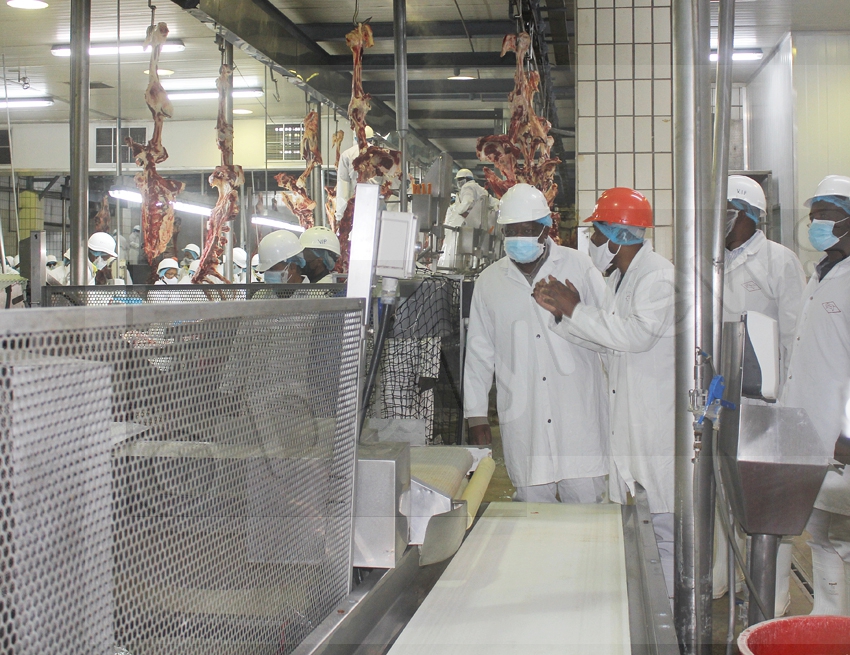Poor work ethics challenge across all sectors
01 Sep 2021
Poor work ethics continue to be a major challenge in Botswana across all sectors of the economy, minister of Employment, Labour Productivity and Skills Development, Mr Mpho Balopi has said.
Answering a question in Parliament on Monday, Mr Balopi said there had been, very little impact realised from the implementation of government reforms which included Organisation and Methods (O&M), job evaluation, privatisation, decentralisation, scarce skill, parallel progression, systems thinking, Monitoring and Evaluation, Performance Management System (PMS), Balanced Score Card (BSC) and Work Improvement Teams (WITS), among others.
He said such reforms were introduced by government for over 20 years with the intent to drive and improve productivity as well as work ethics in the public sector.
Mr Balopi said the reforms were designed and crafted in the context of the Botswana environment and were adopted domestically and cascaded throughout the public sector.
“There was buy-in as demonstrated by their use in government. Of the above mentioned reforms, PMS both in the public sector and at local government structures, the Balanced Score Card and the Smart Work Ethics programme were initiated and driven by the Botswana National Productivity Centre (BNPC),” he said.
Other reforms, he said, were championed through the Public Sector Reforms unit, in the Office of the President and through the Directorate of Public Service Management (DPSM). Mr Balopi also indicated that said although some of the reforms were still being used within the public sector, issues related to low productivity and poor work ethics were still being experienced at various levels.
He said low levels of productivity were continuously reported through the various Global Competitiveness reports.
He highlighted that the current level of public sector productivity was still not satisfactory, as supported by the said reports and that one of the key impediments to improving productivity in Botswana had been lack of a coordinated effort to drive productivity.
As such, he said the ministry had come up with some interventions to deal with such issues, among them, the development of the National Productivity Improvement Blueprint (policy) and Strategy, which he added, would provide an opportunity to address lack of the country’s policy framework or agenda on issues of productivity, it would also seek long term solutions to issues raised by both Global Competitiveness and Ease of Doing Business Reports for purposes of growing the economy and creating sustainable and decent jobs.
He said the document would therefore set out policy direction in relation to productivity and competitiveness issues in Botswana and outlined the government agenda on productivity, which for a long time had not been defined.
Mr Balopi also told Parliament that consultations with government ministries, Business Botswana, Labour and NGO Council, BITC on the National Productivity Improvement Blue Print had been undertaken and comments had been incorporated in the document.
He said the document had also been submitted for Regulatory Impact Assessment (RIA) at the Ministry of Investment, Trade and Industry and had agreed that the document should proceed to the next stages of development.
Again, he said consultations had to be extended to include other stakeholders such as dikgosi considering their role especially on work ethic issues, while on the other hand government would continue with efforts to solicit financial and technical support from its development partners.
He added that once the blueprint had been finalised, the ministry would commission the development of the National Productivity Strategy which would operationalise the National Productivity Blueprint, and further provide targeted interventions to productivity challenges and improve competitiveness.
He indicated that the ministry had also re-launched the Smart Work Ethics programme in partnership with Botswana National Productivity Centre.
He said the programme was being reviewed and as part of the review, the BNPC had partnered with United Nations Development Programme (UNDP) to capacitate its consultants with the latest thinking in areas of mindset change.
“This is further necessitated by the President’s Reset agenda, which places Mindset Change as one of the key priorities, to enable the country to achieve the high-income status,” he stressed.
He said implementation of the Work Ethic Investigation Report, recommendations were implemented by the ministry and the BNPC, while some would be done when budget and support funding were available.
Molepolole North MP, Mr Oabile Regoeng, had asked the minister to state the number of public sector reforms which government had introduced or implemented in the last 20 years with a view to improve productivity and work ethics.
Mr Regoeng also asked if such reforms were designed and crafted in the context of the Botswana environment and whether they got the full buy-in of all stakeholders.
He further wanted to know if such reforms had addressed challenges of productivity and poor work ethics in the country. ENDS
Source : BOPA
Author : BOPA
Location : GABORONE
Event : Parliament
Date : 01 Sep 2021



